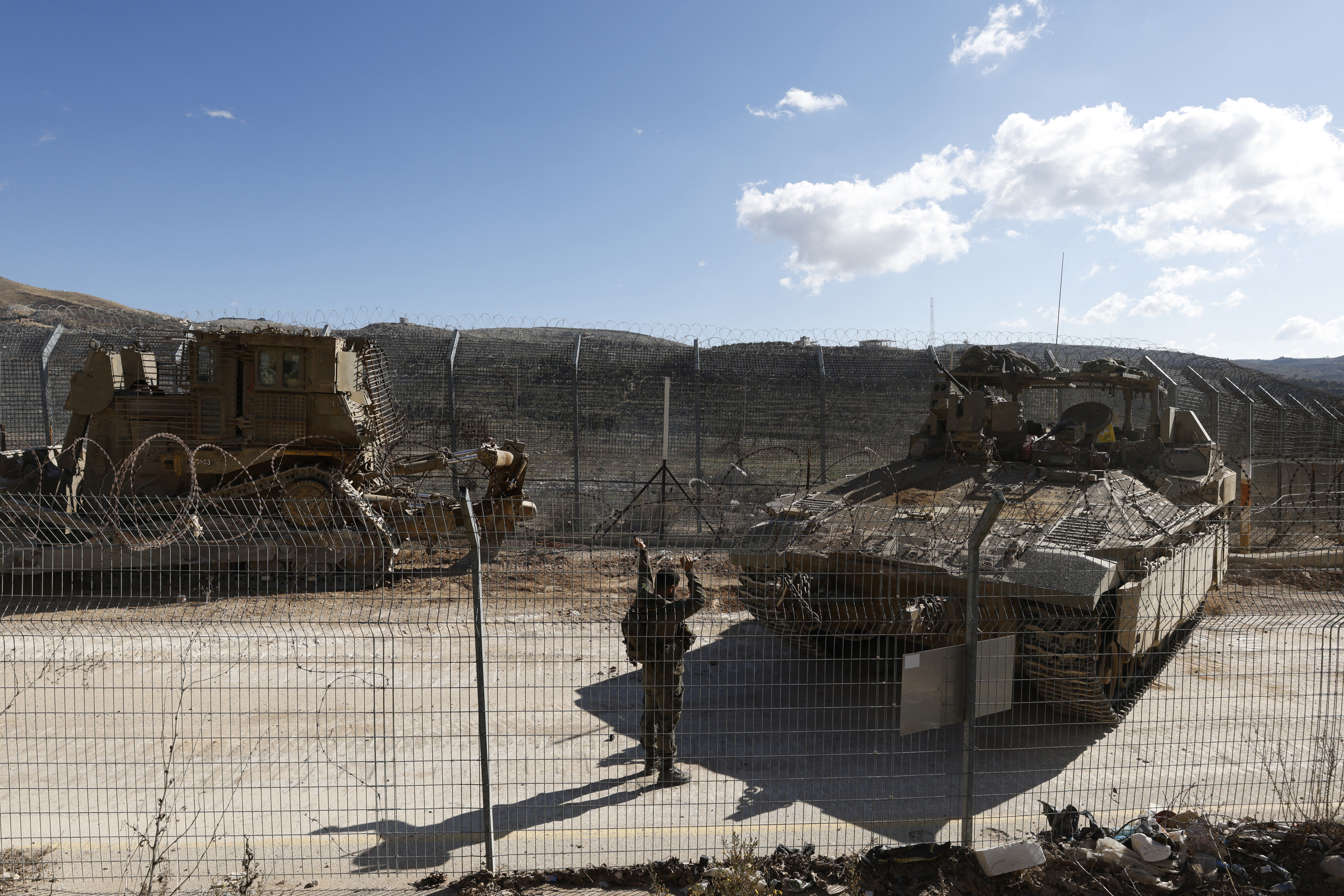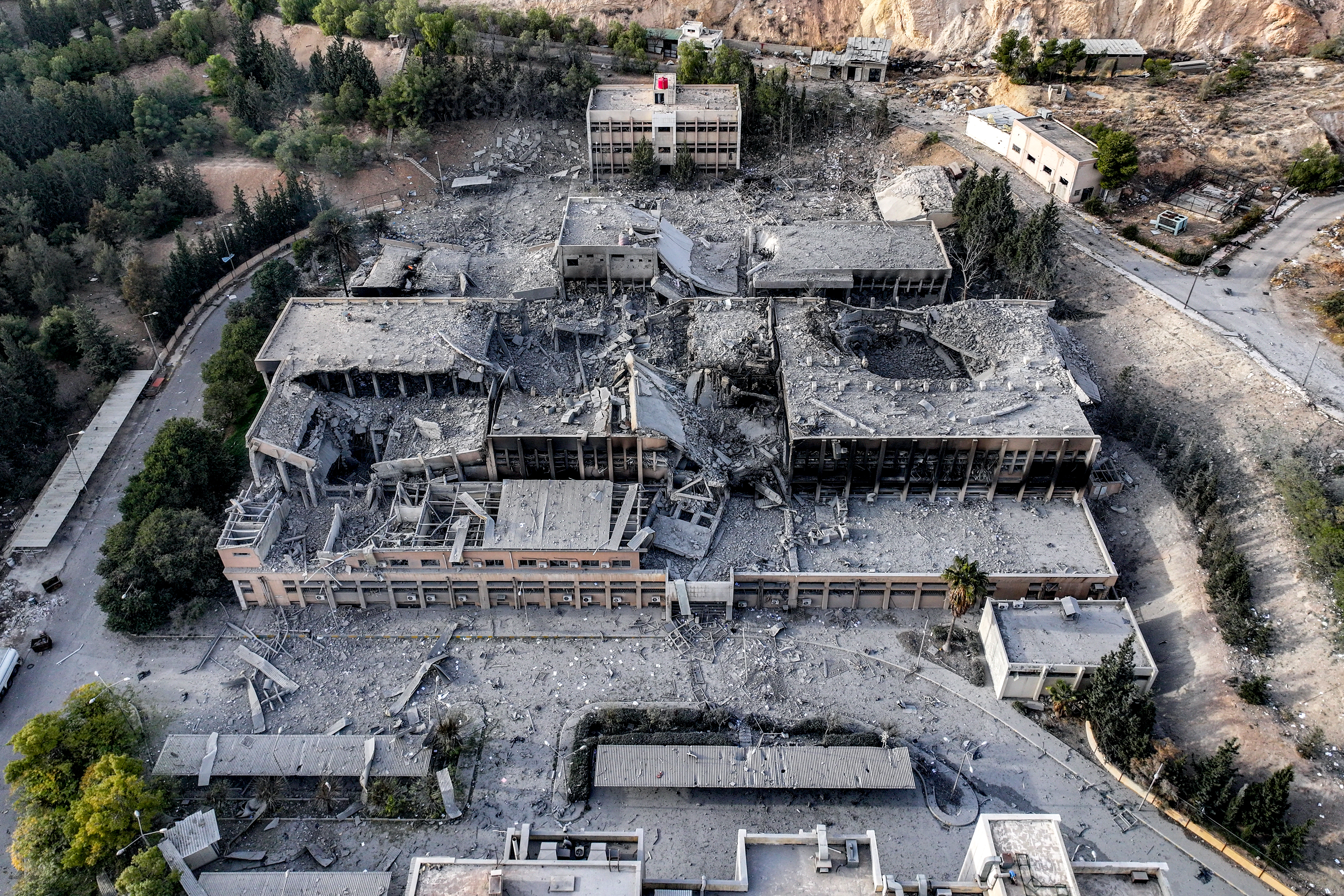
JERUSALEM/ RIYADH/DOHA - The Israeli government approved a plan on Sunday to expand settlements in the Golan Heights, a Syrian territory currently occupied by Israel, according to a statement by Israeli Prime Minister Benjamin Netanyahu's office.
The $10.81-million plan, unanimously approved by the cabinet, is being advanced "in light of the war and the new front with Syria," the statement said.
According to the statement, the plan aims to double the Israeli population in the Golan Heights. It includes establishing a student village, a development program to integrate new residents, and initiatives to strengthen the education system and renewable energy infrastructure.
"Strengthening the Golan is strengthening the State of Israel, and it is especially important at this time," Netanyahu said at the start of the cabinet meeting on the plan. "We will continue to hold on to it (Golan Heights), make it flourish, and settle in it."
ALSO READ: International community condemns Israel's military actions against Syria
Israel captured part of the Golan Heights during the 1967 war and annexed it, despite international condemnation. Following the downfall of former Syrian President Bashar al-Assad's government on Dec 8, Israel seized the UN-monitored buffer zone, a demilitarized area established in 1974 under a ceasefire agreement between the two countries.
Israeli forces also took control of a Syrian army outpost and stationed troops on the summit of Mount Hermon on Golan. Meanwhile, Israel increasingly launched airstrikes on Syrian army assets across the country, claiming to prevent the weapons "from falling into the hands of terrorist elements."

Israel's plan for the Golan Heights drew condemnation from Saudi Arabia, the United Arab Emirates and Qatar on Sunday.
ALSO READ: Israel and its allies should not exacerbate the tumultuous state of affairs in Syria
The Saudi Foreign Ministry said in a statement that the decision is a continuation of efforts to sabotage Syria's chances of restoring its security and stability.
The ministry stressed the need to respect Syria's sovereignty and territorial integrity.
The UAE warned in a statement by its Ministry of Foreign Affairs that the Israeli actions could exacerbate tensions in the region.
"The UAE categorically rejects all measures and practices aimed at altering the legal status of the occupied Golan Heights," the statement said, stressing that expanding Israeli settlements in Golan Heights poses a direct threat to the security, stability, and sovereignty of Syria.

In a statement, Qatar's Foreign Ministry called the decision "a new episode in a series of Israeli aggressions on Syrian territories and a blatant violation of international law."
It called on the international community to fulfill its legal and moral responsibilities by compelling Israel to halt its aggressions on Syrian territories and adhere to international legitimacy.
The statement reiterated Qatar's unwavering support for Syria's sovereignty, independence, and territorial integrity.
Meanwhile, Israeli warplanes launched multiple airstrikes late Sunday, targeting former military arsenals across Syria, according to a war monitor.
READ MORE: Israel steps up strikes in Syria following Assad's downfall
The latest raids hit missile bases in Battalion 107 near Zama and weapons warehouses in rural Tartus, the Britain-based Syrian Observatory for Human Rights reported.
Earlier in the evening, an Israeli jet reportedly struck radar installations at the Deir Al-Zour Military Airport in eastern Syria.
Earlier Sunday, Israeli aircraft targeted former munitions depots dug into mountains in Rural Damascus, causing a series of powerful explosions.
There were no reports of casualties.
These attacks are part of an ongoing military campaign by Israel that began on December 8, targeting any remaining military capabilities linked to Syria's former leadership, as the country's new authorities are working to stabilize the country's security situation.


